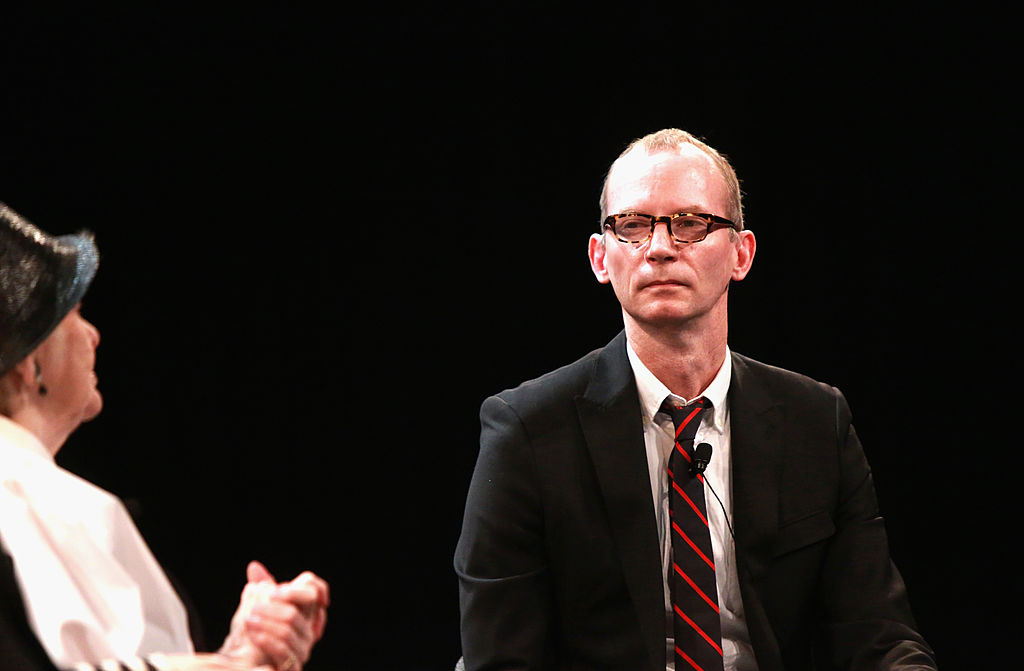Of course, no one can replace Terry Teachout, as I’m sure Charles Isherwood would agree, but Isherwood is the new theater critic at the Wall Street Journal. His first review is of the much-anticipated revival of Neil Simon’s Plaza Suite starring Matthew Broderick and Sarah Jessica Parker, which he pans:
Although Mr. Broderick and Ms. Parker labor mightily to reanimate Simon’s 1968 comedy, their staunch but sometimes strained efforts, and the play’s undeniable fustiness — especially with regard to the relationships between men and women at its center — result in a production that tends to sag between the volleys of wisecracks that suffuse early Simon plays.
The fundamental problem is a matter of miscasting — which looms large, since “Plaza Suite” is basically a trio of two-character plays all set in the same rooms in the famed New York hotel of the title. The stars are immensely likable and talented performers with long histories on stage. But they are not really character actors, which the roles indubitably require, and their attempts to disguise themselves as such are mostly unavailing. (George C. Scott and Maureen Stapleton, in the original cast, were character actors par excellence.)
Isherwood was previously theater critic for Broadway News and, before that, the second-string critic at the New York Times until 2017 when he was dismissed for cause (and about which there appears to be a still-pending lawsuit).
In other news
On Monday, I shared a couple of pieces about travel. Here’s another. Walter Kirn on flying during Covid and how technology has changed the way people experience travel:
I think the problem with flying now is our access to virtual flights within our flights. I’m referring to our phones and our computers, which we sometimes equip with trance-enhancing headphones. They rob us of our old patience, I believe, by affording us access to realms of mental space, and the promise of freedom that comes with them, which physical reality can’t accommodate. The social commons, particularly on planes, is severe in its boundaries regardless of ticket class, but what makes it unbearable in too many cases is the frontier adjacent to it. It’s a frontier of endless self-indulgence, of unlimited agency (or so it seems), but the portal to it is subject to random jam-ups arising in the social dimension. The person beside you raises his window shade, seeking his own version of escape, and cuts short your game, your lonesome fantastic voyage. You realize that, as ever, you’re surrounded.
Sam Leith reviews How Words Get Good: The Story of Making a Book:
The title of Rebecca Lee’s book may not intentionally evoke the Derek Zoolander Center for Kids Who Can’t Read Good and Who Wanna Learn to Do Other Stuff Good Too (as featured in the 2001 film Zoolander), but it has that same wholesome tone of friendly ingenuousness. As the subtitle better indicates, though, it’s not a style guide or writers’ manual. Rather, Lee, who has spent her career editing respectable hardback books and currently works as an editorial manager at Penguin Press, takes the reader stage by stage through the book-making process, from the writer’s brain to the bookshop, remainder bin or (as in the case of 2.5 million Mills and Boon novels repurposed as “bitumen modifier”) the underpinnings of the M6.
Ted Gioia writes about the first music streaming platform: “In the 1930s, a Seattle entrepreneur created a successful analog streaming platform—and ran it out of a drugstore.”
Sean Campbell reports on the $6 million house Black Lives Matter bought in October, 2020 and have so far not disclosed:
On a sunny day late last spring, three leaders of the Black Lives Matter movement — Patrisse Cullors, Alicia Garza, and Melina Abdullah — sat around a table on the patio of an expensive house in Southern California. The women were recording a YouTube video to mark the first anniversary of George Floyd’s murder, and they discussed their racial-justice work and the difficulties they had faced over the year. “For me, the hardest moments have been the right-wing-media machine just leveraging literally all its weight against me, against our movement, against BLM the organization,” Cullors said. “I’m some weeks out now from a lot of the noise, so I have more perspective, right? While I was in it, I was in survival mode.” She was referring to an April 2021 article in the New York Post that revealed her purchase of four homes for nearly $3 million. The disclosures had contributed to the idea that there is a disturbing gap between the fortunes of the movement’s most visible figures and on-the-ground activists across the country, and Cullors resigned as executive director of Black Lives Matter Global Network Foundation on May 27, within a few days of the patio chat. “I think they’ve attempted to cancel us, but they have not been successful in canceling us,” Abdullah said at another point in the conversation. “They’ve attempted to say — and I’m just gonna say it — ‘She bought some damn houses. We gonna cancel her.’” Garza cut in with a comment seemingly addressed to critics: “Y’all don’t know shit about what it takes to live in a box here.” None of the women acknowledged the house behind them. It’s far from a box, with more than 6,500 square feet, more than half a dozen bedrooms and bathrooms, several fireplaces, a soundstage, a pool and bungalow, and parking for more than 20 cars, according to real-estate listings. The California property was purchased for nearly $6 million in cash in October 2020 with money that had been donated to BLMGNF.
Heather Mac Donald takes issue with recent revisionist performances of Beethoven: “For decades, opera directors in Europe and the United States have felt licensed to revise operas to conform to their political agendas. They do so through wildly incongruous stagings that update the action to modern times and introduce progressive totems that would have been unfathomable to an opera’s original creators. Such directorial interventions left the libretto intact, however. Now even that cordon sanitaire between the structure of a work and an interpreter’s political preferences has been breached. Beethoven has been a particular target for textual revision.”
Missing Charles Darwin notebooks returned: “Two ‘stolen; notebooks written by Charles Darwin have been mysteriously returned to Cambridge University, twenty-two years after they were last seen.”


















